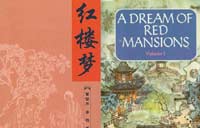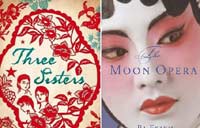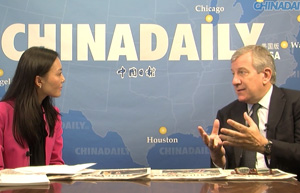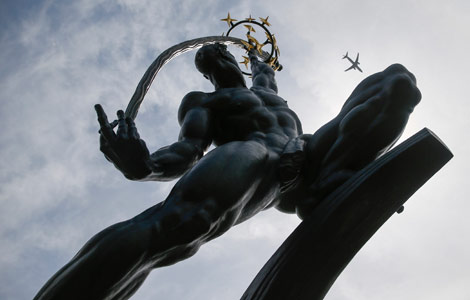More is less as China seeks to promote its literature
Updated: 2014-05-20 09:06
By Cecily Liu in London (China Daily)
|
||||||||
Monica Wyithe contributed to this story.
Chinese literature has played a key role in communicating Chinese values and cultural traditions to the Western world, and needs to be promoted more aggressively, a British academic says.
Michel Hockx, professor of Chinese at the University of London's School of Oriental and African Studies (SOAS), believes China's rapid growth will spur increased interest in its literature.
Great literary works are valuable tools with which China can boost its soft power internationally, says Hockx.
"Introducing Western people to Chinese classics and cultural traditions, including Confucianism, Taoism and Buddhism, is typically what a soft power initiative would do," Hockx says.
Initiatives, such as the SOAS China Institute, are encouraging scholarly research on China and will play a key role in promoting China, he says.
The appreciation for Chinese literature and culture has been growing steadily, thanks partly to the spread of Confucius institutes in Europe, where Chinese languages are taught. These places are drawing large crowds of students.
More Chinese books are now being translated into Western languages, and the country's rising profile in literary circles can be gauged by events such as the London Book Fair, where China was the focus country in 2012. That year, Chinese writer Mo Yan also won the Nobel Prize for Literature.
Hockx appreciates Mo's writings that are usually woven with magical realism and depictions of rural China, where the author spent most of his childhood.
"I think the greatest quality of his works is that they completely shatter the notion of realism, especially when one measures it with the old Chinese belief that fiction needs to be more realistic," Hockx says. "In his works, there's such detail about reality from different perspectives that at some point you realize that the techniques cannot be real."
Related: Learning Chinese language helps Americans know different world

 'Taken 2' grabs movie box office crown
'Taken 2' grabs movie box office crown
 Rihanna's 'Diamonds' tops UK pop chart
Rihanna's 'Diamonds' tops UK pop chart
 Fans get look at vintage Rolling Stones
Fans get look at vintage Rolling Stones
 Celebrities attend Power of Women event
Celebrities attend Power of Women event
 Ang Lee breaks 'every rule' to make unlikely new Life of Pi film
Ang Lee breaks 'every rule' to make unlikely new Life of Pi film
 Rihanna almost thrown out of nightclub
Rihanna almost thrown out of nightclub
 'Dark Knight' wins weekend box office
'Dark Knight' wins weekend box office
 'Total Recall' stars gather in Beverly Hills
'Total Recall' stars gather in Beverly Hills
Most Viewed
Editor's Picks

|

|

|

|

|

|
Today's Top News
China protests against US indictment
China protests cyber theft indictment
Jumei IPO 'milestone'
Chinese foreign minister meets UN chief in Shanghai
Garment workers win $1.2 m
Chicago students prep for China trip
AT&T agrees to buy DirecTV in $48.5B deal
Chinese investment bolsters EB-5 visa program
US Weekly

|

|









